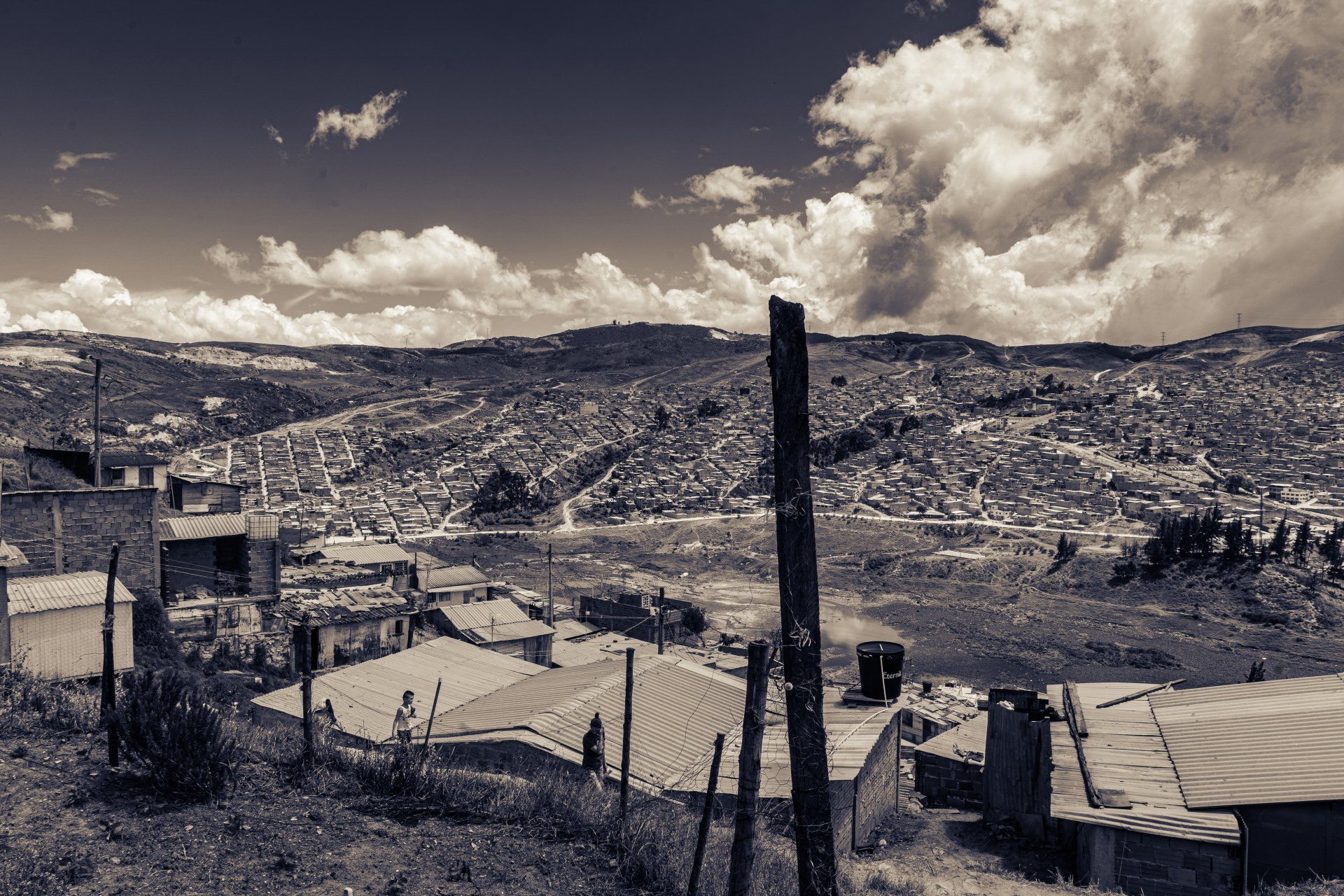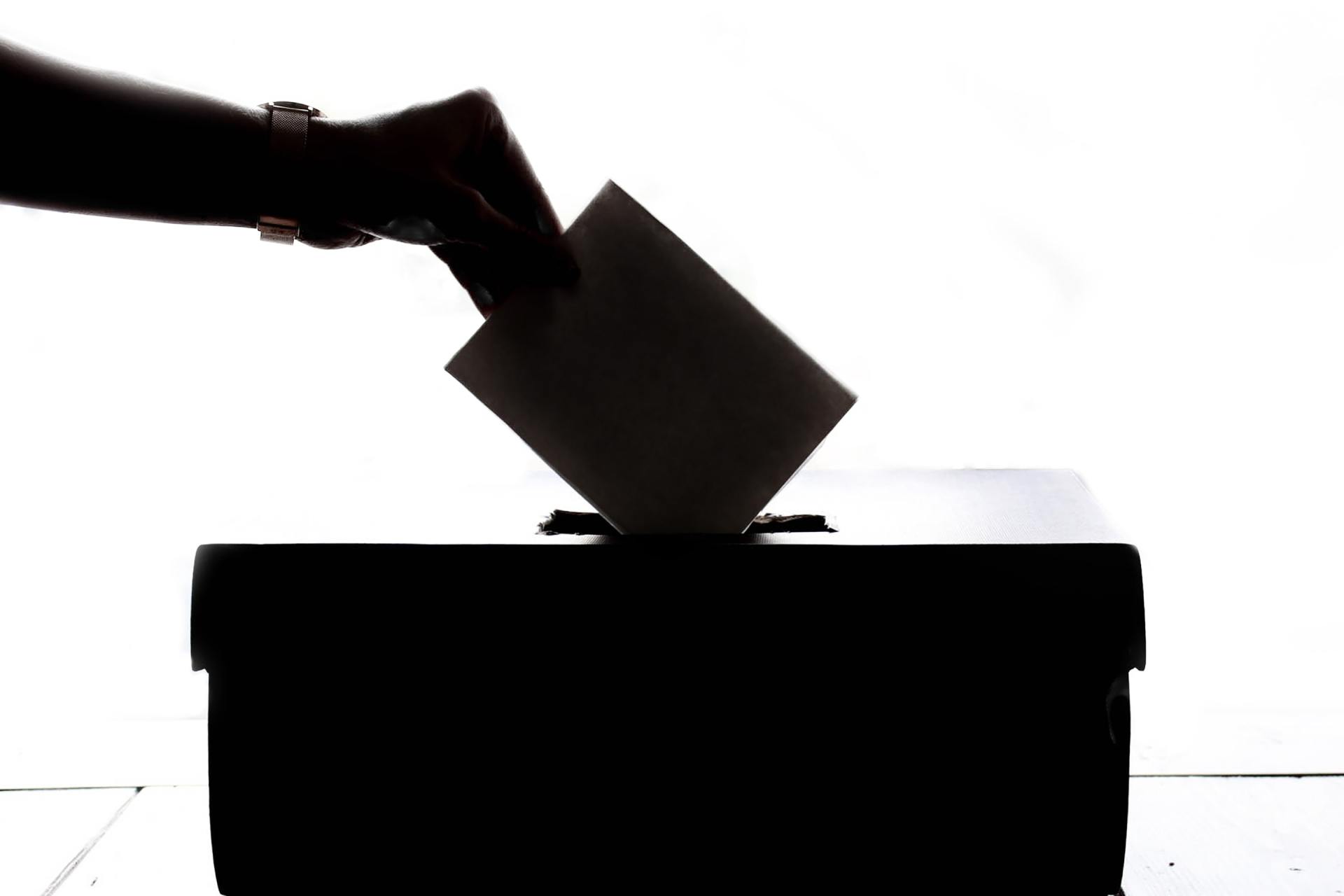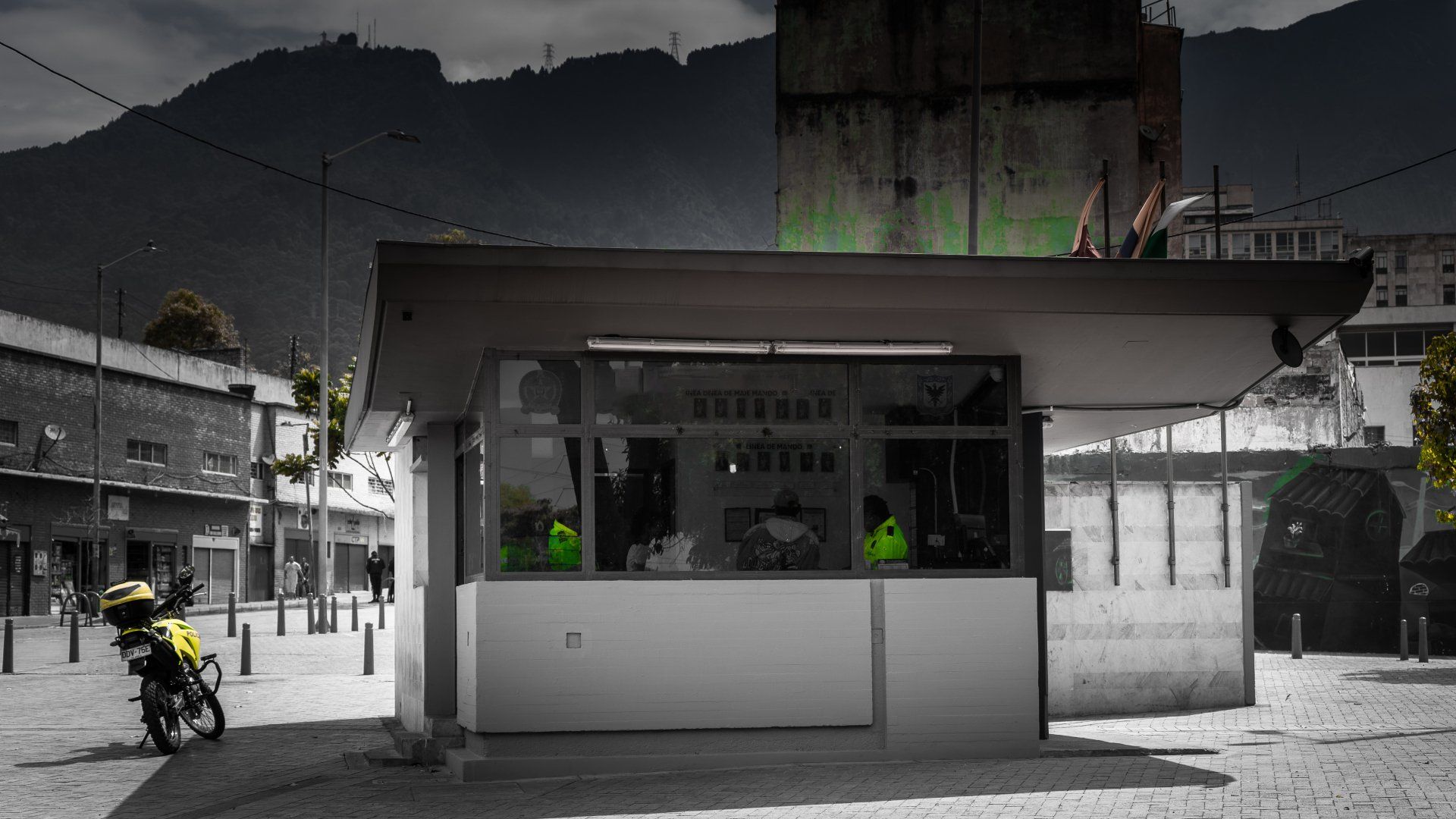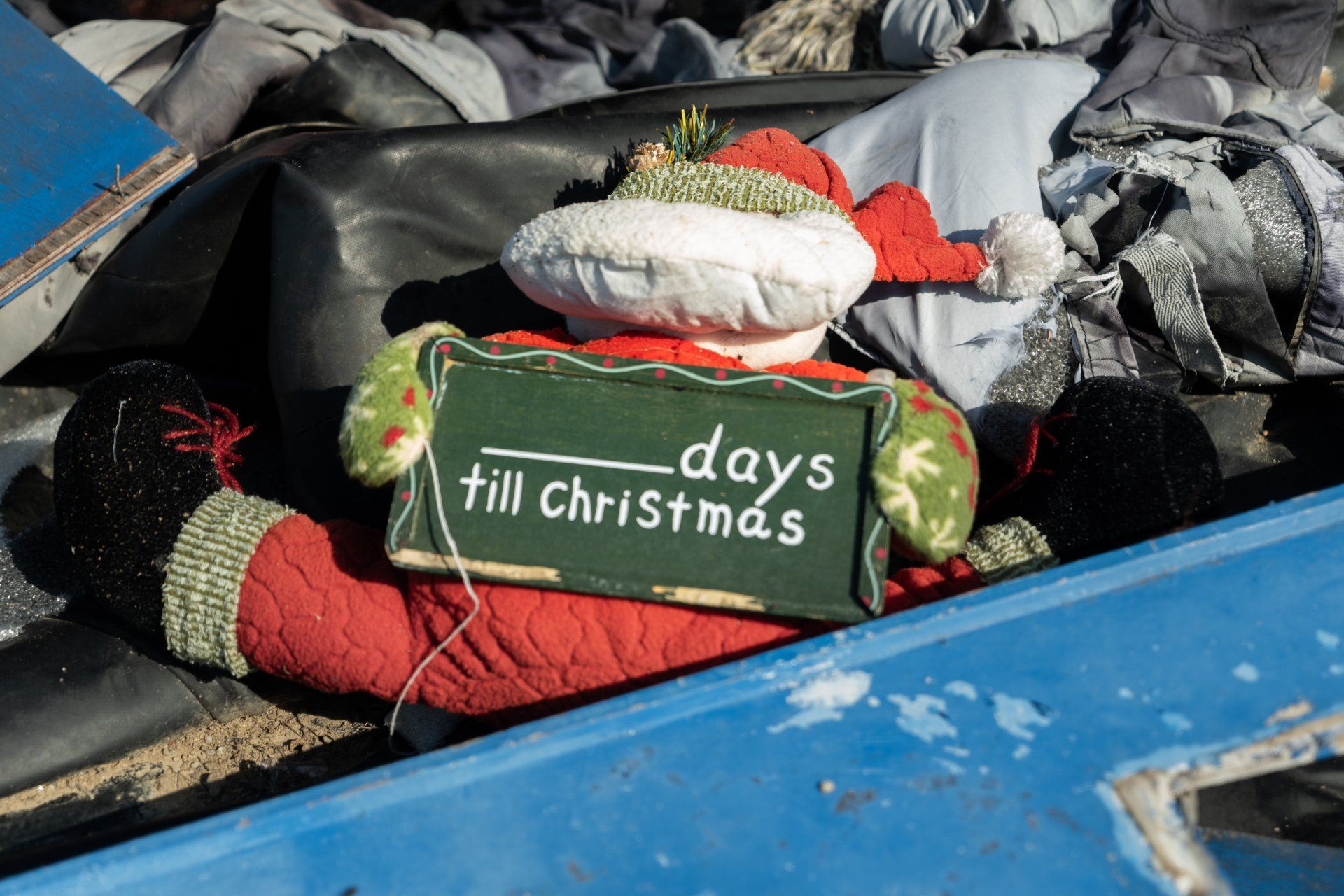Historias de guerra, pobreza, injusticia, compasión, amor y esperanza. Historias que no necesitan nombres ni lugares pues ocurren en todos lados. Un blog que cuenta las experiencias de Catalina y Casper en lugares como los barrios en Ciudad del Cabo, campos de refugiados en Grecia, asentamientos informales en Colombia y zonas de guerra. Sin embargo, nosotros sentimos que estos lugares no necesitan ser nombrados, pues creemos que el sufrimiento no debería ocurrir en ningún lugar y a nadie, y la resiliencia humana es algo inherente al ser humano en cualquier lugar del mundo.
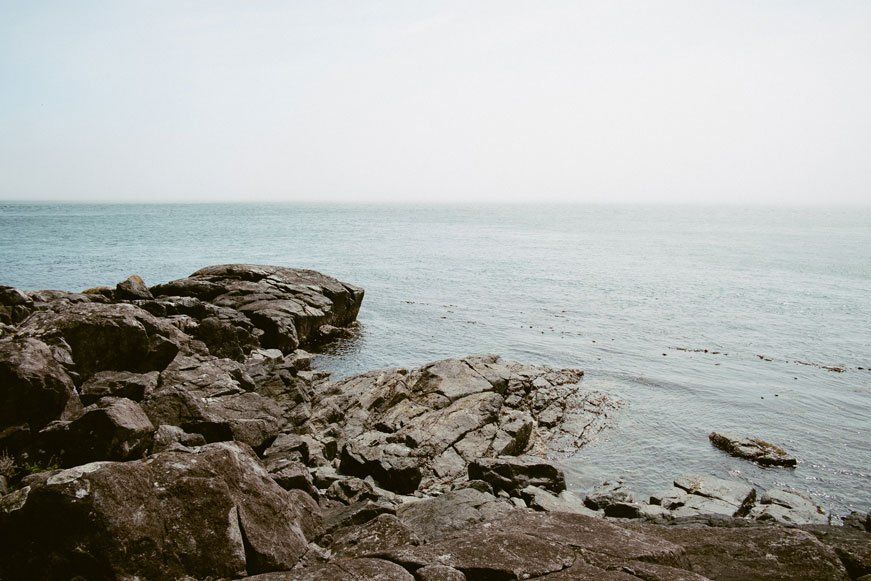
El maltrato tiene tantas caras, que a veces es difícil de reconocer, pero al final no importa la forma, porque todo maltrato se lleva pedazos de nuestra alma que tardan años en reconstruirse. En los años de trabajo con comunidades vulnerables, he oído del abuso y sus distintas caras. El abuso psicológico que busca destruir el alma con palabras, el físico que busca quebrantar la seguridad, el abuso sexual que quiere tomarse por la fuerza un cuerpo ajeno y muchas otras. Que muchas veces no las llaman abuso, sino que se pierden en las clasificaciones. Está ultima parte es una de las cuestiones que más me han llamado la atención en la mesa donde nos hemos sentado a hablar de abuso. En estas mesas he notado muchas veces que se habla de abuso sexual solo cuando existe penetración, lo que minimiza en el lenguaje a los manoseos o toques inapropiados, cuando en realidad, todo contacto físico que se de sin mi consentimiento sobre mi cuerpo y me haga sentir incomoda es un abuso. Encuentro más que necesario que todo lo que es abuso se califique como esto, pues el no hacerlo lleva a que sus víctimas no se sientan con derecho a denunciar o incluso a pasar por el duelo emocional que surge del abuso. En estos lugares de escucha segura he oído las historias más duras y dolorosas de mi vida (El impacto de estas sobre la salud mental del trabajador social lo contaré en otro blog). Estas historias que explican por qué alrededor de la mesa me acompañan mujeres y hombres que, gracias a el dolor, el miedo, la rabia y la vergüenza dieron pasos en su vida que los llevaron a vivir en la calle, caer en adicciones a sustancias psicoactivas, aislarse del mundo y vivir una vida en la oscuridad. A pesar de que en el momento en que se sientan en está mesa es por que quieren una vida diferente, es imposible no ver sus ojos el dolor y la necesidad de escapar. Sus historias dolorosas y de las cuales son víctimas, me ayudaron a entender el camino de cada uno de ellos. Es aquel que les hizo daño, el que les robó tantos años de su vida: el victimario y la causa. Por otro lado las victimas en esta mesa son las que hoy se levantan y los que con fuerza luchan por una vida diferente. "Es por eso que cuando hablamos del problema de las drogas y la inseguridad, la única solución se encuentra en la raíz. Estos chicos no son el problema, ellos son víctimas de un sistema" Al consumo no se llega solo porque las drogas lo hacen pasar un buen rato, no, la adicción es la causa de necesitar huir, de no poder habitar su cuerpo de manera segura, de que el único espacio permanente se haya vuelto su propia cárcel. Es por eso que cuando hablamos del problema de las drogas y la inseguridad, la única solución se encuentra en la raíz. Estos chicos no son el problema, ellos son víctimas de un sistema. Las chicas abusadas que terminan en el consumo, lo hacen por que el único momento que en su cuerpo no se sienten las huellas del abusador, es cuando las drogas las han desconectado del mundo físico. Cuando te falla tan profundamente el sistema que mientras tus mueres de hambre otros comen un banquete con los impuestos, encuentras como la única manera de silenciar el dolor, de no tener que comer, es el consumir algo que te haga olvidar el hambre. Yo se que suena como si estuviera excusando todas sus decisiones, pero es que, si ustedes pudieran conocer sus historias, dejarían de señalarlos a ellos y comenzarían a señalar al gran culpable, uno que no sabe de hambre o de la calle, uno que viste de traje.
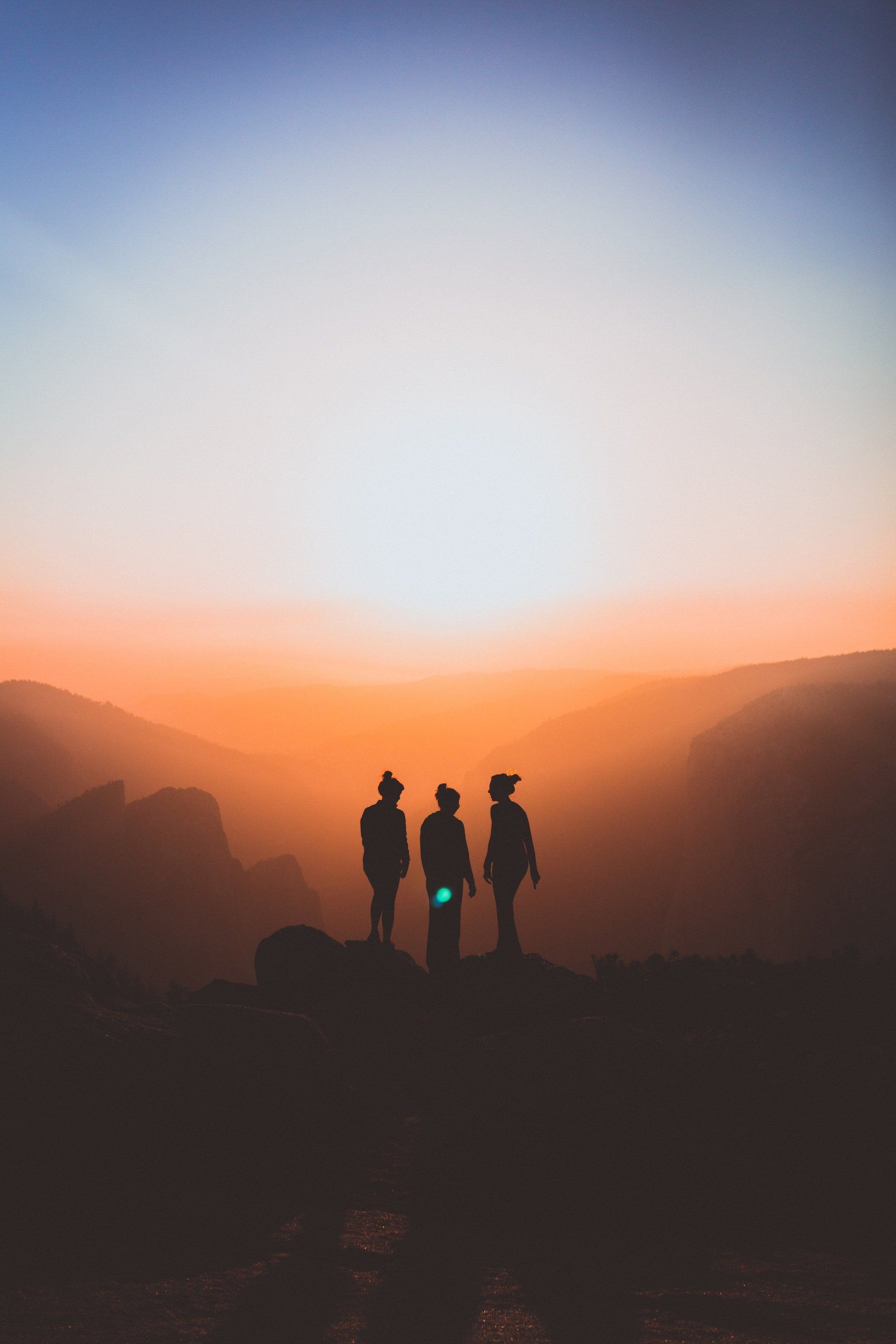
Así que ahí estaba yo. Dispuesto a ayudar. El primer día nos presentaron la ONG los coordinadores de los voluntarios. Nos explicaron el trabajo que estaban haciendo. Cómo estaban mejorando la situación y cómo nosotros, como voluntarios, podíamos ayudar. Pero tenían una regla: no beber una cerveza con los refugiados. "No queremos que desarrolléis una conexión demasiado personal con ellos", dijeron. "La gente saldrá herida", era la razón. "la regla que se suponía que debía evitar el daño estaba causando un daño grave" Me sonó un poco extraño, pero éramos nuevos, así que nos pusimos a trabajar como nos dijeron. Proporcionar ropa, limpiar la basura y arreglar algunas tiendas de campaña. Como trabajadores humanitarios, hay una regla compartida en todo el mundo: "no hacer daño". Venimos a ayudar en circunstancias muy duras, así que lo último que debemos hacer es empeorar la situación. Es una regla muy buena. Pero también es la regla que dio origen a esa otra: no socializar con los refugiados. Mientras recogía la basura en medio del campamento, un refugiado se me acercó y me contó una historia que inmediatamente me hizo ver el daño que realmente hacía esa regla. Sí, así es, la regla que se suponía que debía evitar el daño estaba causando un daño grave. En primer lugar, me contó lo mucho que apreciaba la ayuda de los voluntarios. Mientras que los gobiernos le defraudaban, él agradecía la ayuda. Pero no era tanto el trabajo que hacían lo que era importante para él. Aunque la comida, el refugio y la higiene eran muy necesarios, la presencia de voluntarios era lo más importante para él, porque en medio de todas las atrocidades, le recordaban que todavía había gente en el mundo que se preocupaba. Sólo quería sentirse normal: "Lo que más quería era alguien con quien hablar", dijo. "Y los niños sólo necesitan amor, más que ayuda profesional". "Porque lo único que se puede hacer realmente por un refugiado, es hacerlo valiente". Lo suficientemente valiente como para sobrevivir a todos los horrores que conlleva una vida de huida. Horrores que inevitablemente causan Síndrome de estrés post traumático. Uno de los peores síntomas del SEPT es la pérdida de la capacidad de ver la luz. Y eso era todo, en medio de toda la inhumanidad, sólo necesitaban que se les recordara que seguían siendo humanos. Que todavía había luz en el mundo. Necesitan un hogar cálido, Necesitan un oído atento, Necesitan amor. Y es por esto que esa regla es tan dañina. Porque al decir a tus voluntarios que no se relacionen con los refugiados, les estás diciendo que no los traten como seres humanos iguales. Con esa regla estás contribuyendo a la deshumanización de los refugiados. "Uno de los peores síntomas del SEPT es la pérdida de la capacidad de ver la luz" Y me di cuenta de que esto no es sólo un problema de esa ONG. Aunque el mundo humanitario es muy importante y debería recibir más apoyo, muchas de ellas caen en la trampa de tratar a las personas a las que pretenden ayudar como víctimas. Nosotros somos los ayudantes y ellos son las víctimas. Pero esto crea una brecha, una distancia, entre el que ayuda y el que recibe. Y es precisamente esa brecha la que constituye el problema en primer lugar. La brecha entre ricos y pobres, documentados e indocumentados, sanos y traumatizados. El primer paso para cerrar esa brecha es tratar a los demás como iguales. Tómate una cerveza. No dejes que tus diferencias sociales, económicas o culturales te frenen. Tomemos una cerveza fría y olvidemos nuestras diferencias por un rato
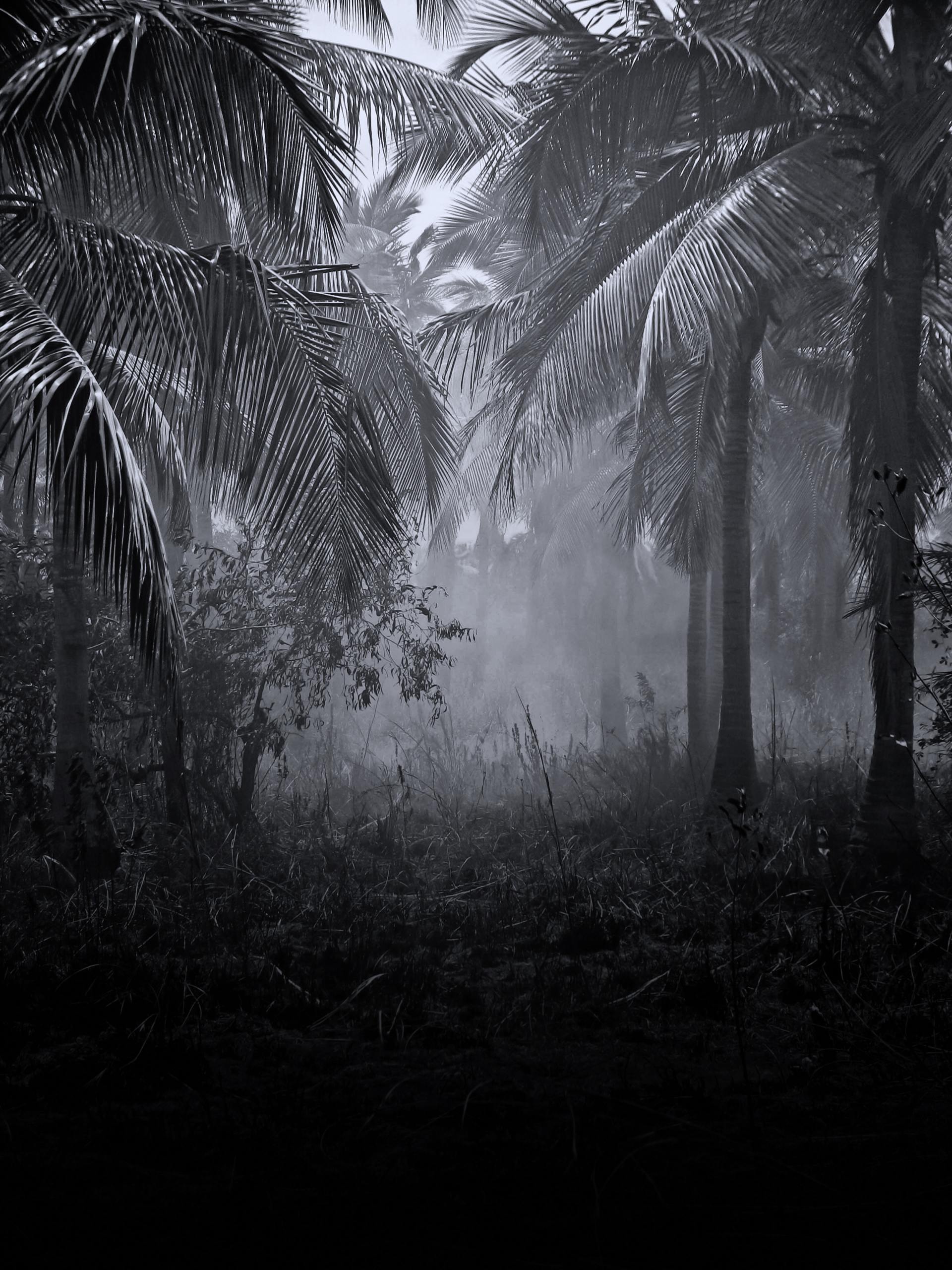
Llego a militar a sus 10 años, él dice que en búsqueda de mejores condiciones de vida y huyendo de la mano fuerte de sus padres. El aclara que no fue reclutado de manera forzosa, sino que llego a la guerra por su libre albedrío. ¿Acaso ofrecerle a un niño una vida donde no seguiría las reglas de sus mayores, y por el contrario tendría un papel crucial en el futuro de su país, no es reclutamiento forzado? Pues al final, cuando se vive en la miseria, el ofrecimiento de una vida diferente es uso del poder y de la manipulación. Narra que los primeros entrenamientos eran duros, pero que le gustaba hacer parte de algo tan grande como esto, al principio no participó en los encuentros armados ya que no estaba totalmente entrenado, por lo que participaba como mensajero o vínculo con la población civil. Después vivió la guerra directa por años. "En la guerra no gana nadie" Tiempo después, tras vivir 8 años de guerra fuerte, de ver cosas que ningún niño o persona debería ver. Deja las armas con un sueño gigante de recobrar sus estudios, ir a la universidad para ser abogado y cambiar la situación de todo un país por vía pacífica. El es mucho más que un hijo de la guerra es padre de la esperanza y de las segundas oportunidades. Han pasado 5 años desde que lo conocí, esta historia la escribí mientras convivimos. Hoy no se que paso con el. Siempre que esa pregunta me llega a la cabeza trato de imaginarme, que sus sueños se cumplieron, que esta cerca de graduarse, que todo lo que algún día la guerra le quito ahora lo tiene. Esto es lo que pienso intentando ser optimista, pero si soy sincera gran parte de mí, duda que esto ella pasado, pues por más que lo deseara. Tengo que ser realista, los acuerdos no se han cumplido, la guerra se ha avivado, las oportunidades se limitan cada día mas. "A los que les gusta la guerra son los que no ponen los muertos" Ruego que él no haya vuelto a la guerra, él no pertenece a esta. A él la muerte le aterra, el quiere cambiar el mundo, se quiere enamorar y que le rompan el corazón, quiere tener hijos para protegerlos de la manera que nunca fue protegido. A muy pocos les gusta la guerra y casi siempre, a los que les gusta son los que no ponen los muertos. Pues más que la guerra les gustan los juegos de estrategia. "Las bajas de la guerra son de todos" En la guerra no gana nadie, tristemente toma años de paz entenderlo, han pasado años desde que la guerra civil española acabo y es hasta ahora que se comienza a hablar de como nadie gano la guerra, pues cada bando puso a sus muertos y los que peleaban eres hermanos, hijos de una misma patria. Espero que estas guerras que todavía siguen activas entiendan pronto que estamos perdiendo todos, que las bajas son de todos. Que este joven del que hablo podría ser de derecha o de izquierda, militar o guerrillero. Como sea merece la vida, la buena vida, la de La Paz, la del amor, la que no cree en bandos, pero si en hermandades.
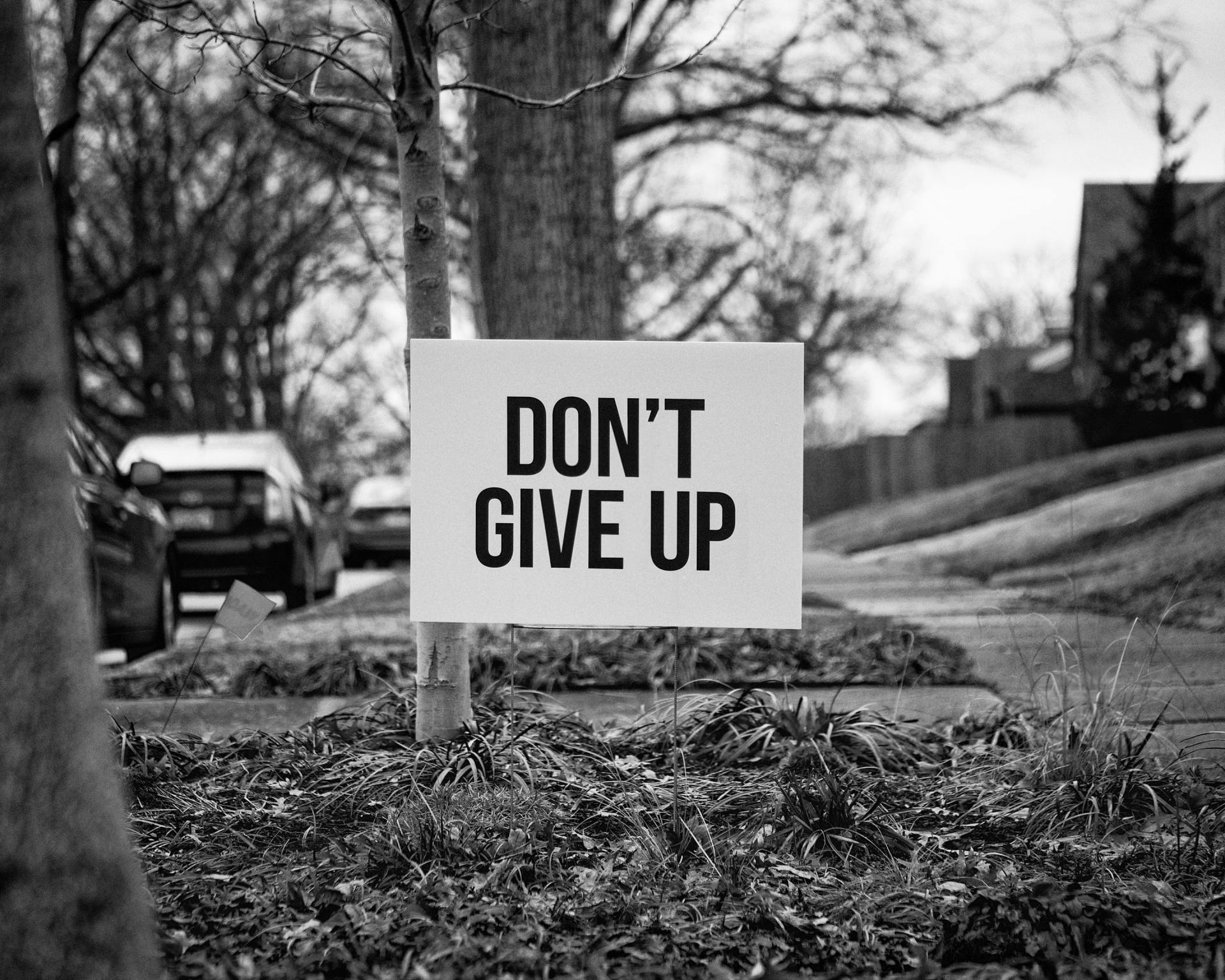
Ella es la prueba de que nadie es lo que parece al principio. Ella me demostró que no hay nada más equivocado que pensar que con una sola mirada se conoce toda la historia. Cuando la conocí, la saludé con una mirada crítica que me hizo pensar "esta loca, qué desastre, me niego a vivir con ella". Hoy, al despedirme, me niego a no volver a verla. Ella me tendió la mano a pesar de que lo único que había hecho era juzgarla en silencio. Es una mujer que, debido a la gran cantidad de violencia en su país, al abuso de sus hermanas y a la falta de un padre que la protegiera, tuvo que dejar su lugar de nacimiento, al igual que millones de inmigrantes cada año, en busca de paz. Llegó a un país que promete un mundo de oportunidades y desarrollo. Buscaba ser periodista para poder contar las historias de los que no son escuchados. A pesar de su duro trabajo y la esperanza de una mejor situación de seguridad en el país que la recibió, tuvo que dejar su trabajo como periodista. Recibió serios tratos sobre su vida, porque sus historias ponían luz sobre atrocidades que algunas personas muy poderosas querían mantener en la oscuridad. "Su trágica historia nunca ha destruido su alma altruista" Después de esto, decidió emprender un largo viaje, cruzando diferentes fronteras, en busca de nuevas oportunidades. Desgraciadamente, no encontró más que la mirada crítica de todos aquellos que no comprenden a las personas que tienen un aspecto diferente al suyo. La juzgan por ser negra,por africana, por inmigrante. En su propio país la juzgan por irse. Y se juzga a sí misma por no haber acompañado a su madre durante sus últimos días. El arrepentimiento marca cada una de las cicatrices que ha ido acumulando a lo largo de los años. Siempre se pregunta si su historia habría sido diferente si se hubiera conformado con lo poco que le ofrecía su país, y si hubiera podido hacer oídos sordos a la injusticia y a la guerra. Aunque le cueste aceptarlo, sabemos que su historia podría haber sido aún más trágica si no hubiera emigrado, porque la guerra, la violencia y la pobreza habrían acabado con ella. Además, en mi egoísmo debo decir que emigrar nos permitió conocernos y por eso le estaré eternamente agradecida. Su trágica historia nunca ha destruido su alma altruista. Ella es la prueba de que somos TODO menos víctimas de las circunstancias. "Gracias por preocuparte" Gracias por tus desayunos que aunque no tenías mucho compartías conmigo para que no echara de menos tu casa. Gracias por defenderme por encima de todo. Gracias por preocuparte y sobre todo, GRACIAS por enseñarme a mirar más allá de mi propia ignorancia.
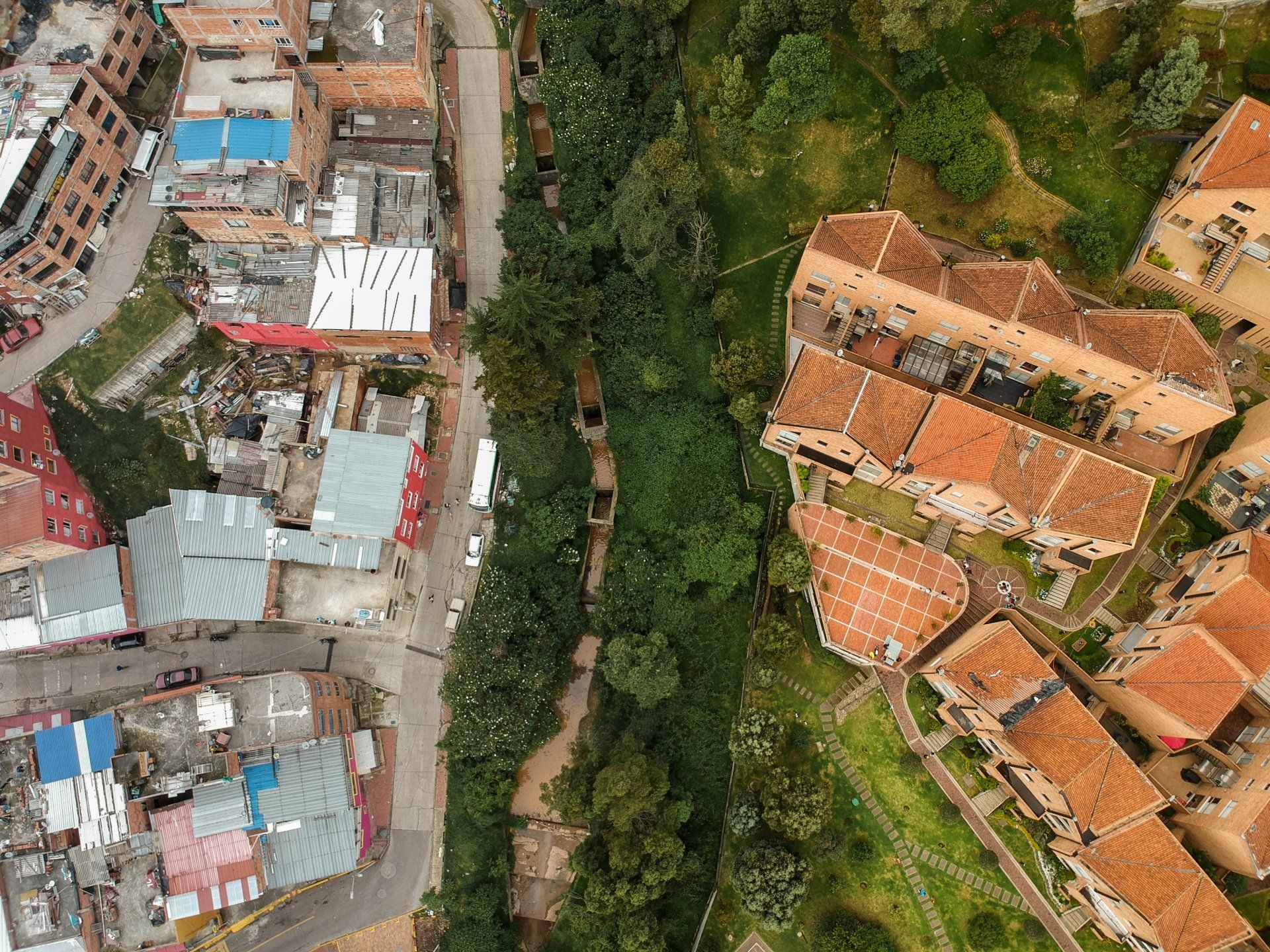
The first time I witnessed poverty was when I was 17 years old (a first sign of my privilege). But while the images of poverty were poignant (almost 10 years later I still haven’t gotten used to it), there were two things that impressed most. It was the first time I encountered something that I would see over and over again all around the world in the years to come. It was the people. From the point of view of my own spoiled comfortable life, I’d imagine myself to be depressed, hopeless and despaired if I’d have to live in such circumstances. But these people showed the exact opposite. We visited a school where a teenage girl with the most powerful voice welcomed us warmly with a beautiful speech. It was full of strength, ambition and vigor, and it taught the lesson to not ever judge someone based on the conditions they live in. I don’t know what happened to her, nor do I remember her name, but I can only imagine she went on to conquer the world. At the very least, she affected my life. I didn’t quite know how to describe what I saw that day at the time. But now I do: that speech, those words spoken so eloquently by this young woman, was a voice of resilience. "that speech was a voice of resilience" But there was a second thing that marked me for the rest of my life. After visiting the slum, the school, and an orphanage for parentless children with HIV, we were invited by a local friend for a BBQ. That night we ate tons of food next to a private pool, got drunk, and finished the night in the jacuzzi. While that day was the first time I saw poverty, that night was the first time I experienced inequality. While poverty is bad enough by itself, inequality creates a whole bunch of new problems, such as, social conflict, division, educational and labor inequities, segregation and the consequent stigmatisation, discrimination and hate. Books can be written about each one of those but today I’m talking about the initial feeling I got when I experienced inequality for the first time: guilt. I felt guilty: how could we be consciously enjoy sitting in a jacuzzi knowing that the people we met earlier that day are freezing in their broken tin-roofed shacks? How can we live with four people in a 100 m2 house while they have to share 12 m2 with six people? Well, one solution to get rid of that guilt is to give all that up and move to the slum. But that would be very stupid. In my opinion that would even be disrespectful to the people that had no choice but to live in those circumstances. Although I do think society should give some things up to end poverty, I don’t think guilt is going to do anyone any good. "Let’s share the power of speech with those that don’t have it" Poverty is multifaceted, and where its physical manifestations (small houses, little food, little money, etc.) are the most obvious, in my opinion it is not what is most defining of poverty. Because poverty isn’t just going to be solved by rich people giving shelter and food to the poor. That will merely treat the symptoms of a decease that will continue to exist. For instance, we live in a world where the voice of a person with money is more powerful than the voice of one without. Not because the rich person has something better to say, but because our is system is programmed to only listen to those that are valuable to society in terms of money. That is what defines poverty. That is inequality. Not having money means not being able to defend your own rights, as much as the rich are able to do. So what can we do? Let’s share the power of speech with those that don’t have it. Because I don’t believe people don’t want to listen. It’s simply that people without money don’t have access to the general platforms of speech: television, politics, universities, etc. That is why their voices aren’t heard. "the people that have had the toughest life’s, are the ones with the most interesting stories" But I know, and I think you do too, that the people that have had the toughest life’s, that have survived the most difficult circumstances, are the ones with the most interesting stories. Think about Nelson Mandela, Malcom X and Frida Kahlo. Their words have helped, inspired and improved the world more than any banker, lawyer, or CEO has ever done. That’s why today I still remember that girl’s speech, while I’ve forgotten every single conversation, I had in that jacuzzi. It wouldn’t just help the poor to be able to speak, it would help all of us. And that is where the privilege comes in of those that have it. Don’t hide it behind your shame. Use it. Share it with those that don’t have it. Identify your channels. Maybe your university is willing to invite inspiring speakers. Maybe you know some politicians. Or maybe you have thousands of followers on Instagram. Whatever it is, use it to give others a space to make themselves heard. Use it, and you will not only help them. You will help yourself and the world. Because the people that have had such difficult experiences, and yet show such hope, strength and resilience. Those are the people that are going to make this world a better place. So let them.
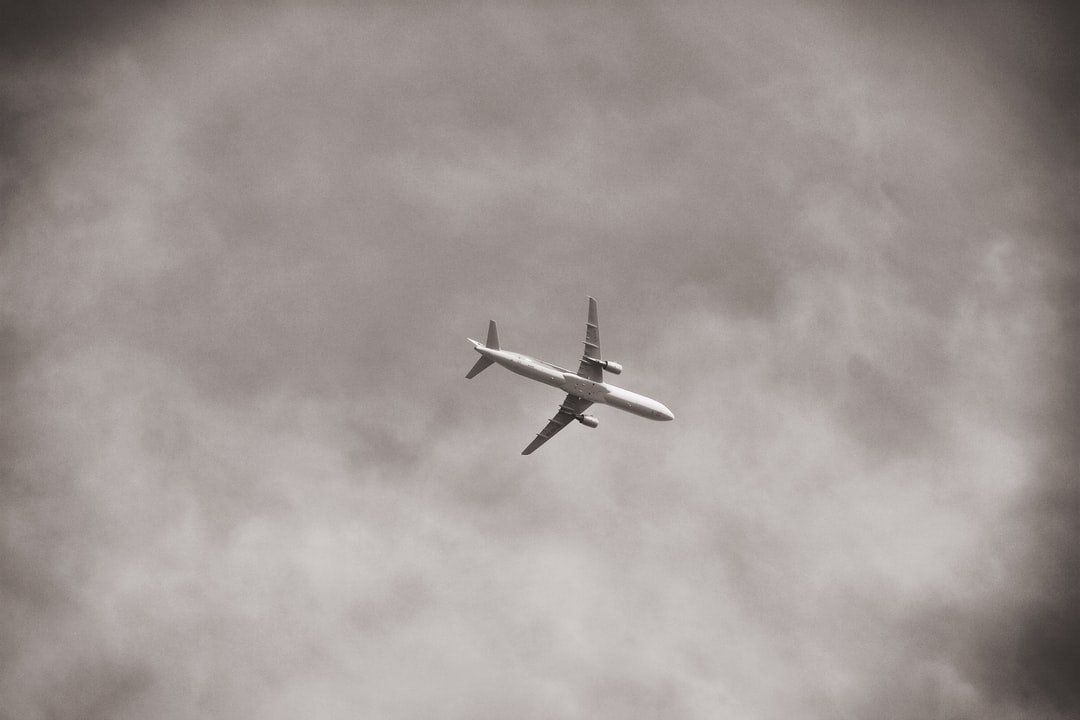
Inmigrante de 21 años lleva 6 meses fuera de su país, trabaja en el transporte público rebuscandose con uñas para tener que comer. Hace unos años se encontraba en un salón cursando su cuarto año de leyes, decidió ser abogado ya que se sentía Inconforme con el aparato judicial de su país y quería luchar por los derechos propios y de otros, desde muy pequeño a trabajado pues su familia tenía bajos ingresos económicos, aunque nunca le faltaba nada, su primer trabajo que narra con gran emoción fue vendiendo refresco que llevaba en una cavita al mercado donde gritaba “refresco refresco”. "Migrar el pecado de muchos." Al llegar se encuentra con una realidad muy diferente a la que esperaba él creía que por ser un país vecino encontraría hermanadas y una cultura parecida pero por el contrario a tenido que luchar en contra de los estereotipos y la xenofobia, la situación económica no es más fácil que la social pues no puede trabajar de manera formal y el trabajo informal genera poco ingresos, por lo que decide montarse todos los días al transporte a generar conciencia, romper estereotipos y contar la historia de su país para que nunca sea repetida, narra que nunca se imaginó tener que pasar por esta situación lo cual no evita que salga todos los días a luchar por un diario para él y para poder enviarle un sustento a su familia que son su motor para soportarlo todo con una sonrisa. "un soñador que lucha por recuperar su país" Sueña con volver a su país y que en este se pueda respirar un aire de Libertad donde los niños puedan jugar con sus padres, un país justo. “Mire amigo venimos de un mismo color, de un mismo libertador y las oportunidades no se le niega a nadie” Más que un inmigrante es un hijo de su patria, un soñador que lucha por recuperar su país. Al otro lado del mundo se cuenta la misma historia, un inmigrante de 27 años lucha por pertenecer en un país que dice recibirlo después de años de vivir en zonas de guerra, de sufrir ataques que dejaron su cuerpo marcado de por vida, de caminar, nadar y correr para llegar y aguantar en las condiciones más deplorables para recibir un documento que le permita pertenecer. "siempre se es diferente de aquel que nació aquí" Después de todo esto él solo se podía imaginar que al llegar a este país que dijo legalmente que sería su asilo, su nuevo hogar, él podría reconstruir su vida y rearmar sus sueños. Pero la situación es diferente la sociedad que lo recibe ya a etiquetado a los de su clase como desagradables y peligrosos, mientras que el gobierno decide lavarse sus manos al menor inconveniente que este tenga. Pero acaso no se suponía que ahora él era parte del todo, que hora él pertenecía como cualquier otro que naciera aquí. No importa como ha sido la migración ni sus causas siempre se es diferente de aquel que nació aquí. La Xenofobia, los odios, los estereotipos y el miedo a lo desconocido se ha convertido en la mayor crisis social de nuestros tiempos. Los conflictos armados, la situación económica y el desarrollo han llevado desde siglos atrás al desplazamiento de masas, en los últimos años este evento tan conocido e inevitable se ha convertido en una problemática social. Anteriormente la migración traía desarrollo, los vikingos eran migrantes y sus viajes eran celebrados, ahora los migrantes son segregados, juzgados y atacados por el simple hecho de buscar mejores condiciones. "nadie sale de su país a menos de que este deje de ofrecer los mínimos" Estos ataques no tienen ningún sentido, si trazamos nuestros caminos hasta lo más adentro de nuestras raíces, podríamos ver que todos somos el resultado de este movimiento de masa que ha combinado culturas y creado nuevas sociedad, es por esto que hoy el llamado es a entender que detrás de cada movimiento existen causas muy profundas, que nadie sale de su país a menos de que este deje de ofrecer los mínimos, que nadie deja a su familia a menos de que lo que hay en el otro lado sea más seguro, que migrar es una decisión con muchas causas. Por esto es necesario que entendamos que la patria, el territorio y la nación son una construcción social. La naturaleza migra, se combina y crece, eso es exactamente lo que debemos hacer. Demos la bienvenida, luchemos por políticas incluyentes, hagamos más fácil el estar lejos, seamos buenos con aquellos que lo dejaron todo.




